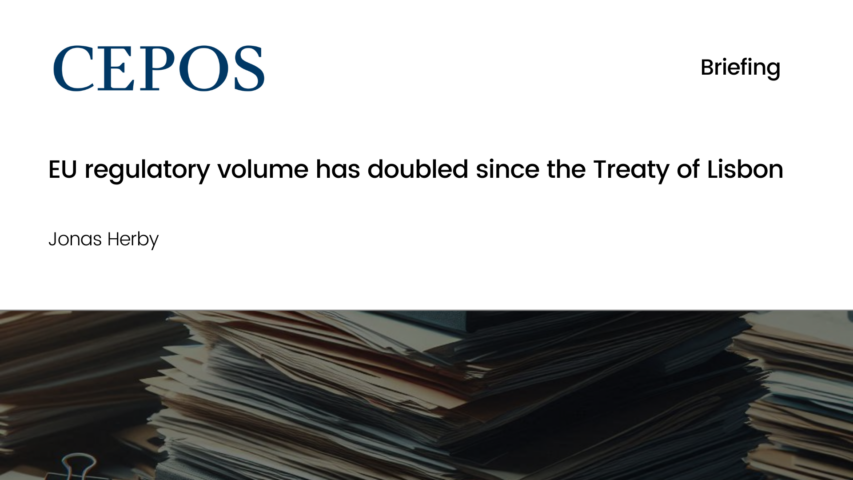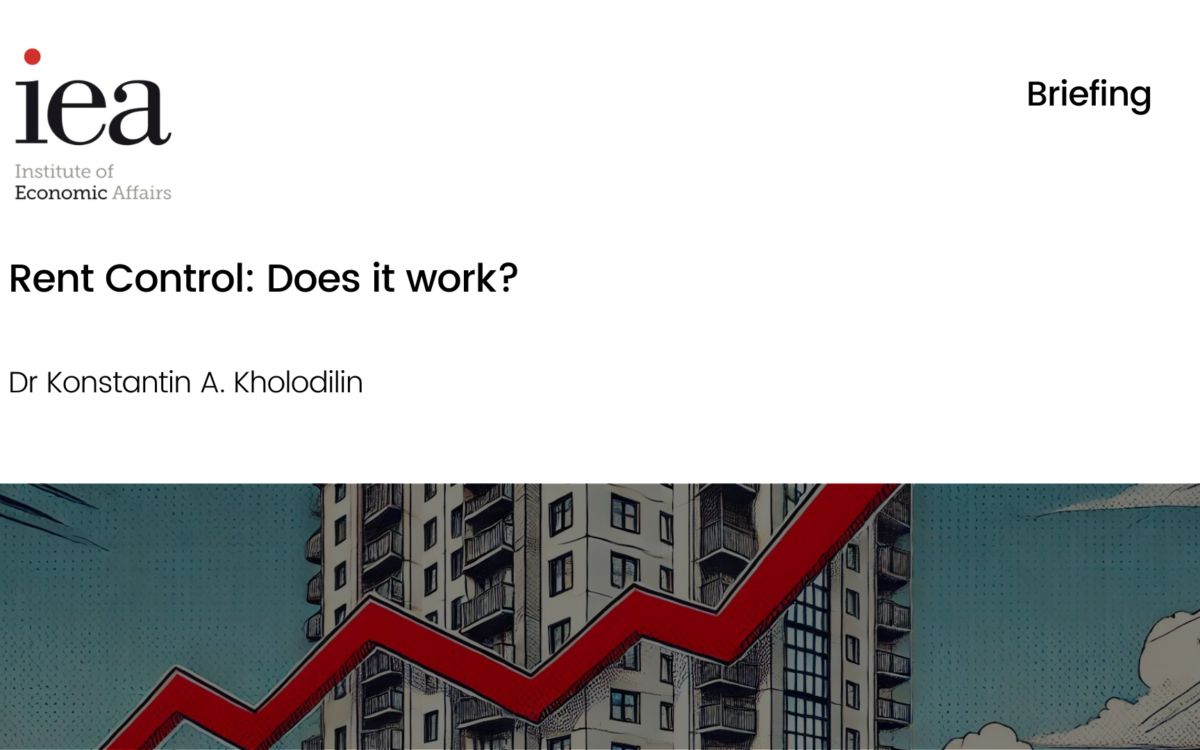EU Regulatory Volume has Doubled Since the Treaty of Lisbon

EU Regulatory Volume has Doubled Since the Treaty of Lisbon
07 June 2024 // Jonas Herby
EU legislation has increased 729 per cent since the Maastricht Treaty (from 1 January 1994 to 1 January 2024) and 101 per cent since the Treaty of Lisbon (from 1 January 2010 to 1 January 2024). This legislation inflation is mainly constituted by EU regulations.
Despite claiming to simplify existing laws and reduce unnecessary regulatory costs, the von der Leyen Commission has overseen a substantial increase in regulatory activity; the amount of legislation in EU legislative acts has increased by 14 per cent since 1 January 2020.
In Denmark, more than six out of ten regulations in force have been introduced by the EU, either directly through EU regulations or indirectly through EU directives.
Over the past 35 years, the volume of rules in Denmark has increased by 26.7 million words (315 per cent) – from 8.5 million words in 1989 to 35.2 million words in 2024 – and EU legislation accounts for approximately 19.3 million of it.
The significant increase in regulation via EU directives and regulations has not, however, seen any corresponding decrease in regulation originating from the Danish parliament.
Regardless, it cannot be concluded that there would have necessarily been less regulation without the EU; national politicians would probably have most likely regulated the area themselves in the absence of the EU.
Download or share this publication
View the PDF
EPICENTER publications and contributions from our member think tanks are designed to promote the discussion of economic issues and the role of markets in solving economic and social problems. As with all EPICENTER publications, the views expressed here are those of the author and not EPICENTER or its member think tanks (which have no corporate view).



